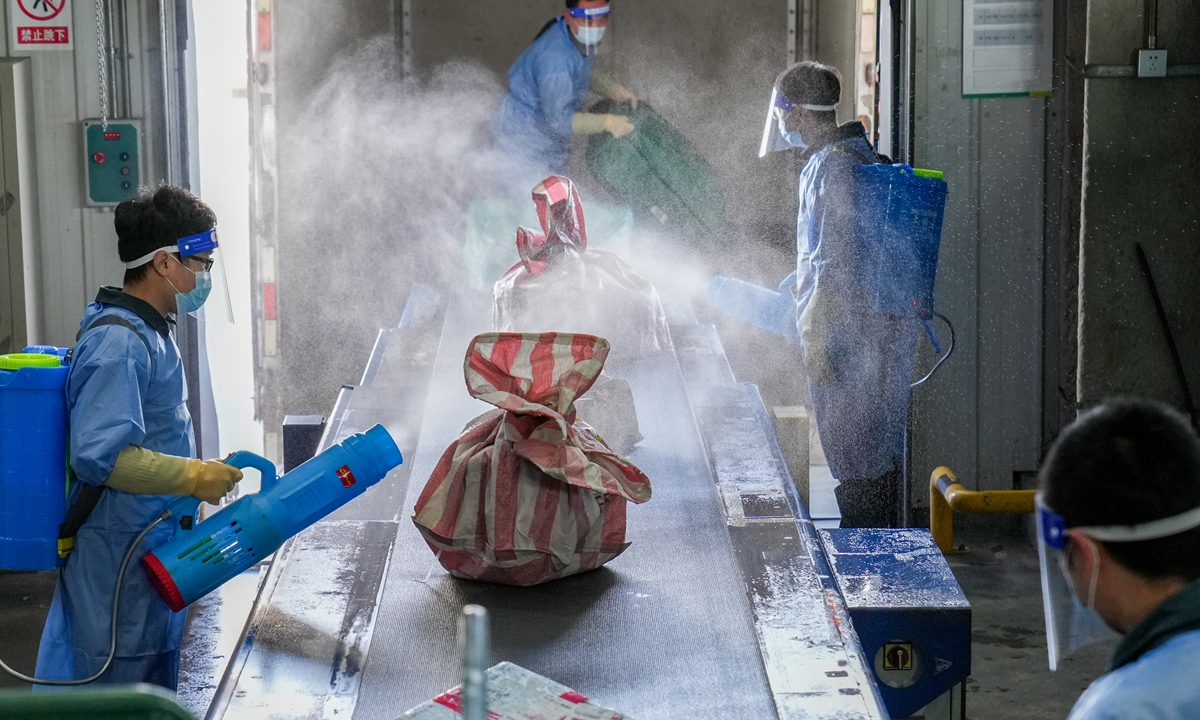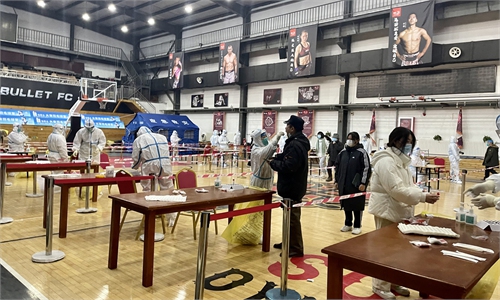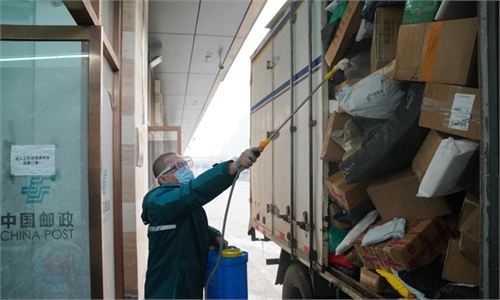All-round disinfection to be carried out for intl mails to ensure ‘safe delivery for the last kilometer’: Chinese post official

Staffers conduct disinfection on packages arrving from outside the country in the terminal site of Beijing Air Mail Processing Center on November 19, 2021. Photo: CFP
At least four rounds of disinfection will be carried out for international mail upon their arrival in China to prevent COVID-19 transmission from overseas, an official from the State Post Bureau of China said on Tuesday. Several cases found in Beijing, Zhuhai and Shenzhen in South China's Guangdong Province were suspected of being infected by contaminated goods from overseas.
Upon their arrival, all containers will be disinfected by the airport in the first place, Bian Zuodong, an official with the State Post Bureau said. Their outside packaging or mailbags will also be disinfected before customs clearance. For large mail items, disinfection will be carried out piece by piece; while disinfectant will be sprayed through a tube inserted into small mailbags.
After customs clearance, express delivery companies will open the mailbags and disinfect them one by one. At express delivery network sites, working staff will complete another round of disinfection. This means at least four rounds of disinfection will be done, Bian said, noting that some enterprises will also adopt ultraviolet disinfection to ensure disinfection in an all-around way.
Since Tianjin in North China announced the first confirmed case infected by the Omicron variant on January 9, Omicron has been reported in nine cities covering six provinces across China within 10 days.
A patient infected with Omicron from Shenzhen, whose work involves handling overseas frozen reagents, was likely to have contracted the virus after being exposed to contaminated goods from overseas, the local authorities said at Monday's press briefing. The confirmed patient in Beijing was also suspected of being infected by contaminated mail from Canada.
Although reports said some goods tested positive in nucleic acid tests, it does not necessarily mean that there is a live virus on the surface of the item. When a virus exists on the surface of an item, it loses its vitality after a period of time, said Zhao Wei, a public health professor at Southern Medical University in Guangzhou during an interview with media.
Three conditions must be met for humans to be infected via an object: the virus on the surface of the object must be a live virus; coronavirus must enter the human body through the respiratory tract; people who come into contact with the contaminated object must not have immunity, Zhao said.
The whole-process COVID-19 vaccine inoculation rate in the express delivery industry has reached over 98 percent, Bian said, noting that contactless delivery is also encouraged and smart express delivery boxes could be used.
Bian stressed that preventive measures have been carried out to ensure safety when couriers deliver international mails to customers. Couriers are required to follow basic health protection requirements such as wearing masks, washing hands frequently, checking temperature and no gathering, in order to ensure a safe process during "the last kilometer."
Bian suggested residents open mails outdoors, disinfect the inside, and wash their hands later.
The State Post Bureau of China on Monday issued a notice to tighten regulations for overseas mails to prevent the transmission of COVID-19 from overseas, suggesting people reduce goods delivery from countries and regions with a high risk of COVID-19.


